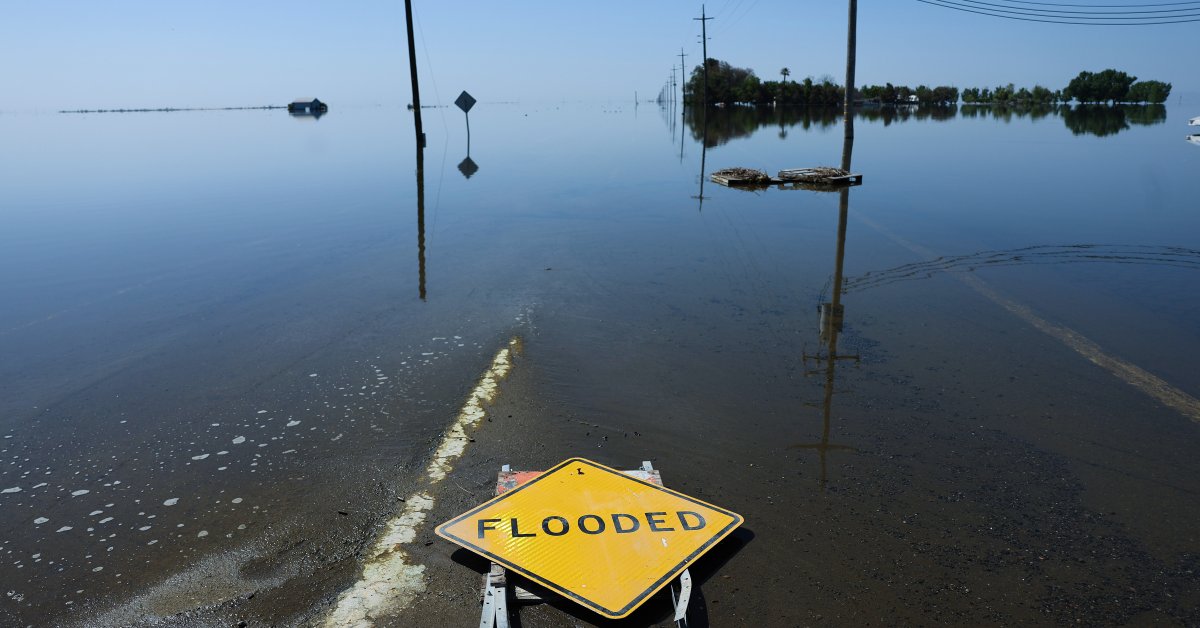Why Are 100-Year Weather Events Happening So Often?

Welcome to your ultimate source for breaking news, trending updates, and in-depth stories from around the world. Whether it's politics, technology, entertainment, sports, or lifestyle, we bring you real-time updates that keep you informed and ahead of the curve.
Our team works tirelessly to ensure you never miss a moment. From the latest developments in global events to the most talked-about topics on social media, our news platform is designed to deliver accurate and timely information, all in one place.
Stay in the know and join thousands of readers who trust us for reliable, up-to-date content. Explore our expertly curated articles and dive deeper into the stories that matter to you. Visit Best Website now and be part of the conversation. Don't miss out on the headlines that shape our world!
Table of Contents
Why Are 100-Year Weather Events Happening So Often? A Deep Dive into Increasing Extreme Weather
Are you noticing a disturbing trend? Once-in-a-century storms, droughts, and heatwaves seem to be hitting us with alarming frequency. The headlines scream "unprecedented" and "record-breaking," leaving many wondering: why are these 100-year weather events happening so often? The simple answer is climate change, but the complexities behind this escalating crisis deserve a closer look.
The Shifting Baseline of "100 Years"
The term "100-year event" is a statistical measure, indicating an event with a 1% chance of occurring in any given year. However, this calculation relies on historical data, which is now fundamentally skewed by human-induced climate change. As global temperatures rise, the probability of extreme weather events increases dramatically, rendering the old statistical models increasingly inaccurate. What was once considered a rare occurrence is becoming disturbingly commonplace.
The Role of Climate Change: More Than Just Rising Temperatures
While rising global temperatures are the primary driver, the impact of climate change on extreme weather is multifaceted:
- Increased Atmospheric Moisture: Warmer air holds more moisture, leading to more intense rainfall and flooding events. We're seeing devastating floods across the globe, from Pakistan to Germany, exceeding historical benchmarks.
- More Powerful Storms: Warmer ocean temperatures fuel stronger hurricanes and typhoons, increasing their destructive potential. The intensification of these storms is a clear indicator of climate change's impact.
- Prolonged Droughts: Changes in atmospheric circulation patterns can lead to prolonged periods of drought, impacting agriculture, water resources, and causing widespread wildfires. The recent drought in California, for instance, exemplifies this devastating effect.
- Severe Heat Waves: Rising temperatures are directly responsible for more frequent and intense heatwaves, posing significant risks to human health and infrastructure. The deadly heatwaves experienced in Europe and North America in recent years highlight this escalating threat.
Beyond the Statistics: Real-World Impacts
The increasing frequency of these extreme weather events has far-reaching consequences:
- Economic Losses: The cost of damage and recovery from extreme weather events is staggering, placing immense strain on economies globally. Insurance companies are already facing unprecedented payouts.
- Displacement and Migration: Severe weather events force people from their homes, leading to displacement and migration, creating further societal challenges.
- Food Security: Droughts and floods severely impact agricultural production, threatening food security and potentially leading to widespread famine.
- Loss of Biodiversity: Extreme weather events damage ecosystems and accelerate biodiversity loss, further destabilizing our planet's delicate balance.
What Can We Do? The Urgent Need for Action
The scientific evidence is overwhelming: climate change is driving the increase in 100-year weather events. Addressing this crisis requires immediate and concerted global action. This includes transitioning to renewable energy sources, implementing sustainable agricultural practices, and investing in climate adaptation measures. Individuals can also play a crucial role by reducing their carbon footprint and advocating for climate-friendly policies. The time for action is now; the future of our planet depends on it.
Further Reading:
Call to Action: Learn more about climate change and how you can contribute to solutions. Your actions today can help shape a more sustainable tomorrow.

Thank you for visiting our website, your trusted source for the latest updates and in-depth coverage on Why Are 100-Year Weather Events Happening So Often?. We're committed to keeping you informed with timely and accurate information to meet your curiosity and needs.
If you have any questions, suggestions, or feedback, we'd love to hear from you. Your insights are valuable to us and help us improve to serve you better. Feel free to reach out through our contact page.
Don't forget to bookmark our website and check back regularly for the latest headlines and trending topics. See you next time, and thank you for being part of our growing community!
Featured Posts
-
 Honey Boo Boos Fiery Feud I Dont Like Her She Says Of Patti Lupone
Jun 01, 2025
Honey Boo Boos Fiery Feud I Dont Like Her She Says Of Patti Lupone
Jun 01, 2025 -
 Disqualification Shakes Up Nascar Josh Berrys Broadway 150 Win Revoked
Jun 01, 2025
Disqualification Shakes Up Nascar Josh Berrys Broadway 150 Win Revoked
Jun 01, 2025 -
 Discovery Of Burned Body Prompts Investigation At Stone Mountain Park
Jun 01, 2025
Discovery Of Burned Body Prompts Investigation At Stone Mountain Park
Jun 01, 2025 -
 Backlash Mounts Joni Ernst Faces Criticism For We Re All Going To Die Video
Jun 01, 2025
Backlash Mounts Joni Ernst Faces Criticism For We Re All Going To Die Video
Jun 01, 2025 -
 Medicaid Debate Senator Ernsts Response Under Fire
Jun 01, 2025
Medicaid Debate Senator Ernsts Response Under Fire
Jun 01, 2025
